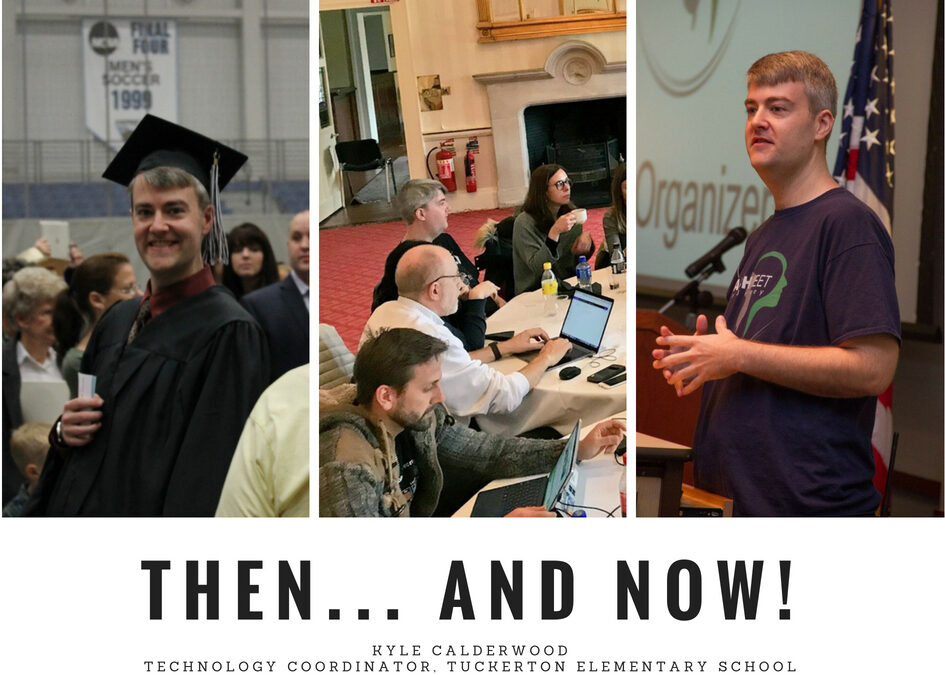Welcome to this edition of #firstyearteacherme! We are collecting words of wisdom from NCCE friends, trainers, and staff to share with early career teachers and other educational professionals through our blog. Experience brings understanding, and we know that if we could do it all over again, we would all approach things in a bit of a different way. This time, we’re chatting with Kyle Calderwood, Technology Coordinator at Tuckerton Elementary School in New Jersey and NCCE professional learning specialist.
Kyle Then and Now
Kyle Then: Kyle was a Professional Service Specialist in Computer Services and Telecommunications at Stockton University for 10 years before entering the K12 sector. This gave him the foundation to work with faculty, staff, and students on a professional level.
Kyle Now: Kyle is the Technology Coordinator at Tuckerton Elementary School in New Jersey. They are a Pre-School to grade 6 school with roughly 300 students. In 2013 he became a Skype Master Teacher with Microsoft Education. The following year he became a Microsoft Innovative Educator Expert and has followed that up with being a Minecraft Global Mentor, Minecraft Trainer, MIEE Trainer, and a Surface Expert. In 2016, he joined NCCE as a Professional Learning Specialist.
What I Really Wish I Had Known Early On
“Don’t be afraid to lean on your peers for help. Asking for help from them can save you money (and time) from having to contract out for issues. Your peers can be an asset for many different reasons, whether they’re in your building/district or across the world.”
Kyle’s Top 3 Pieces of Advice For New IT Administrators
- Work closely with your teachers – You may have the power to introduce new hardware or software but be sure first it will be utilized. I have a tech community at my school with a few teachers in each wing. These teachers are my go-to group to discuss new hardware/software I might be considering. Most times I will obtain a trial or demo hardware for them to try out before we move on to purchase. It makes all the difference.
- Don’t purchase items unless they’re requested by administrators or highly sought after – I learned early on to safeguard my budget and to choose purchases carefully. This ensured a level of trust between myself and my administration. When I request funds for new software/hardware, they now know that it is not just a frivolous expenditure.
- Don’t be afraid to ask for help – Since my school is small (~300 students) I am the only IT staff member. I, therefore, have no one to bounce ideas off or ask questions. I rely on my PLN (Professional Learning Network) on both Twitter, Skype, GroupMe, and Google+ communities. This allows me to collaborate with professionals all over the world who are in the same position as I am. This can be very valuable when gaining feedback on a product or seeking technical support.

